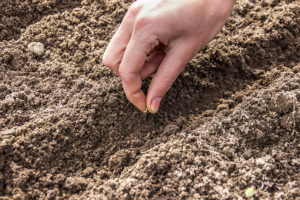
Today’s reading: Mark 4, Psalm 128
As I studied Mark 4 this week, I found myself in familiar territory. I’ve read these parables and stories about Jesus and his followers many times. Even so, I was still struggling with what the message of this post should be. I went to my Life Application Study Bible (Tyndale House), as I often do, for help. There I found a few good reminders about Jesus’ use of parables.
- Using familiar subjects to teach spiritual truths required Jesus’ listeners to engage their hearts and minds to understand the story. This engagement made the message meaningful to those who were open to learning. To those whose hearts and minds were closed, the message remained hidden.
- Jesus’ parables generally had one main point. When reading them today, we must be careful NOT to go beyond what message Jesus intended to teach with the story.
So there I sat with Mark 4. Were my heart and mind engaged? Was I open to learning? I worked on… The chapter begins with the Parable of the Sower, or the Parable of the Soils, as it is identified in my Bible. Verses 3-8 tell the story, then verses 15-20 provide the interpretation. Jesus said, the farmer is the one who brings God’s message to others, while the seed represents those who hear the message. He went on to explain the four different types of soil on which the seeds may fall:
- Hard soil – those who hear God’s message, but Satan lures them away before they accept it.
- Rocky soil – those who joyfully receive God’s message, but don’t grow deep roots. When they run into persecution, they fall away.
- Thorny soil – those who hear and accept God’s message, but the pull of earthly desires keeps them from maturing and producing fruit.
- Good soil – those who hear and accept God’s message, then multiply and yield a great harvest for God’s kingdom.
Jesus’ message here was all about the soil, and how it represented the condition of our hearts, right? Our hearts clearly need to be like the good soil in order to be pleasing to God. Seems pretty straight forward, but therein was my struggle. Do the four types of soil represent four different types of people, some are pleasing to God and others are not? Does this mean some receive salvation and some do not? Perhaps our hearts may have represented a different type of soil at different times of our life. If this is the case, is it possible to lose our salvation? I wonder if different types of soil may even be present in our hearts at the same time. Do you find yourself more open to apply God’s calling in some parts of your life than others? For example, do you easily respond to God’s call to worship him and fellowship with other believers, but at the same time you struggle to sacrificially give of your time and money in service for his kingdom? Hmmm… If the only type of soil pleasing to God is the good soil, how will any of us ever measure up? Does salvation require a heart of 100% pure, good soil all of the time? Maybe this parable isn’t as straightforward as I originally thought.
As I continued to study, the light bulb finally came on… Jesus’ message in the Parable of the Soils isn’t really about the soil at all. Rather, the Parable of the Sower is truly about the Sower! See, left to our own devices, our hearts will never be 100% pure, good soil. Even so, God continues to lavishly scatter the seeds of his gospel message on our unworthy souls. Our only hope is Jesus Christ, our Savior. His sacrifice on the cross paid the price for our sins. It is only through him we can ever measure up to God’s standards.
But if we walk in the light, as he is in the light, we have fellowship with one another, and the blood of Jesus, his Son, purifies us from all sin. If we claim to be without sin, we deceive ourselves and the truth is not in us. If we confess our sins, he is faithful and just and will forgive us our sins and purify us from all unrighteousness (1 John 1:7-9).